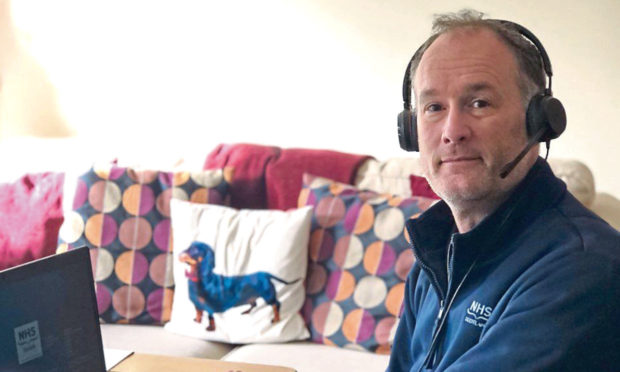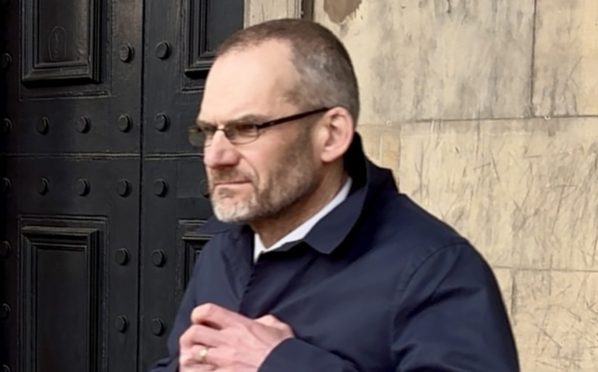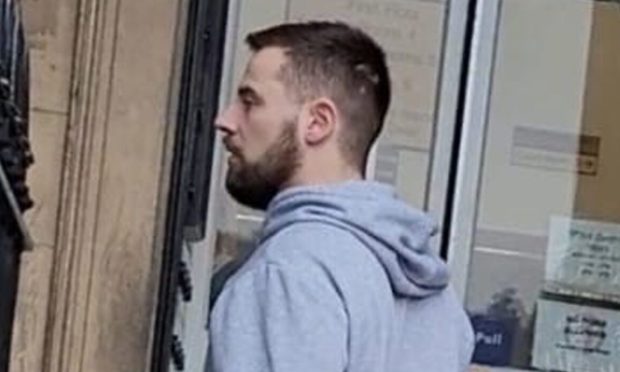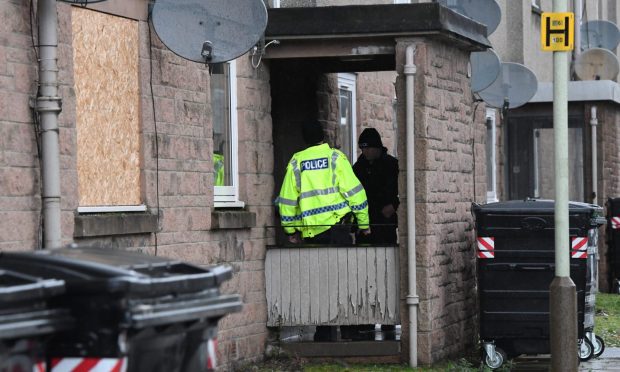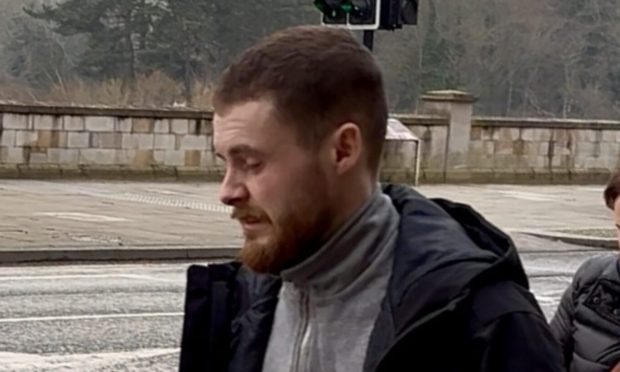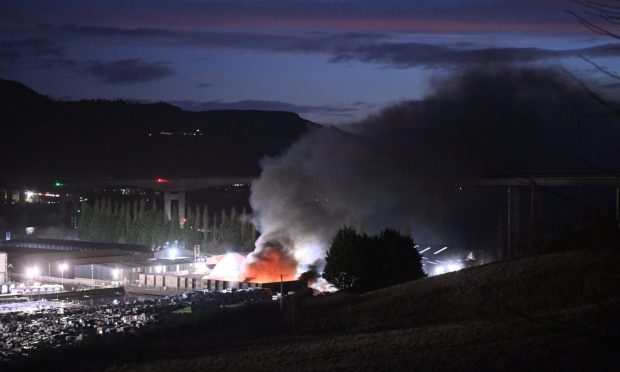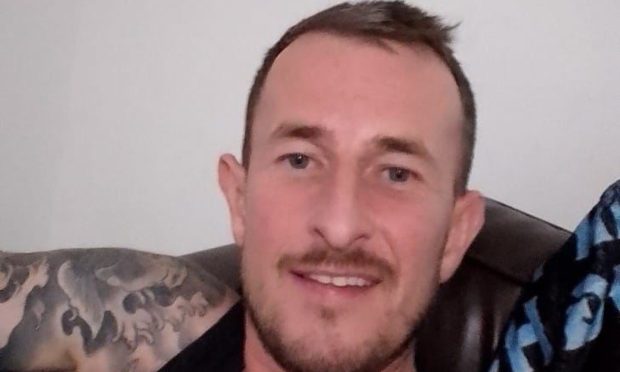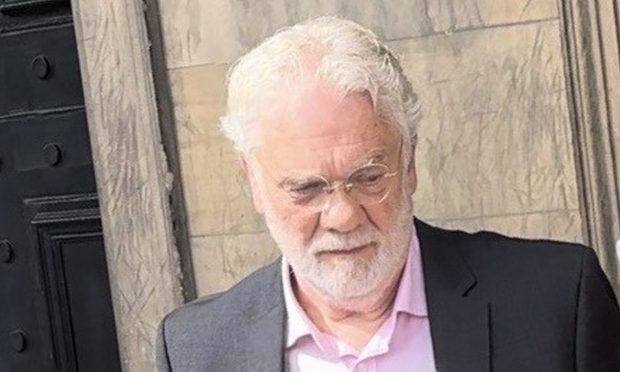A Perthshire contact tracer has spoken of the key role he and colleagues are playing in efforts to stop the spread of Covid-19.
Chris Dodds is part of a team working to ensure people who have been in contact with someone who is infected to go into quarantine for 10 days.
In NHS Tayside alone, there are 86 people working as contact tracers, dealing with 100 positive cases and up to 200 contacts every day.
A day in the life of a contact tracer
Chris, 49, from Bridge of Earn, said: “I just sit behind a laptop but we are part of a bigger team.
“There is a serious fight going on in the ICU wards and in the hospitals and the staff there are right on the frontline, but we are a key part of the fight too.”
He has been working as a contact tracer for NHS Test and Protect for the past three months after previously working on the NHS 24 coronavirus helpline dealing with 111 non-emergency calls and helping members of the public with their symptoms.
“It has been a busy three months,” he said.
“Test and Protect was around in sexual health before the pandemic, so some contact tracers already had those skills coming into the pandemic.
“We work in shifts with the index case, which is the person with a positive result, and interview them within 24 hours of their test results.”
The results from everyone who goes through the testing programme, whether it is a drive-through centre, lateral flow tests, the tests people have at their workplace, or home kits, are fed into a national database and then on to tracers like Chris.
‘Virus will get anywhere it wants to’
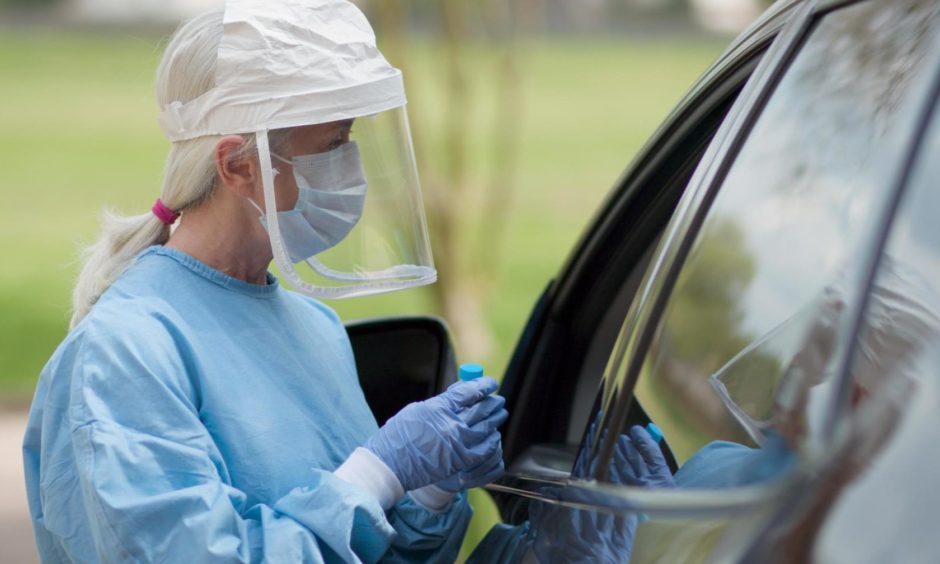
Based in Bridge of Earn, he deals with cases from across Tayside.
“There are no barriers, the virus will get anywhere it wants to,” he said.
“If someone is symptomatic they should be isolating anyway, but we need to contact them quickly to stop them from going out while they are still in the infectious period.”
“We are a key part of the fight” – life on the coronavirus frontline
Chris said it was satisfying to see case numbers coming down, thanks to efforts such as test and trace, the vaccination programme and people sticking to the rules.
He said: “It is rewarding to see the numbers coming down when people take your advice and stay at home.
“If they do that, there is more of a chance of society returning to how we would like to see it.
“The key message is if you get symptoms you must stay at home, isolate and get tested.
“If we work quickly and get public cooperation, the quicker the virus is suppressed.”
Chris speaks about dealing with family members and contacting people who have been infected
One part of the job Chris says he particularly enjoys is talking to lots of different people from day to day.
He added: “There are all walks of life out there, the virus doesn’t discriminate.
“We have had to phone people on Christmas Day, phone people on their birthdays, phone people who are elderly, and phone people who live alone or in vulnerable situations.
“Sometimes we can’t actually contact the person because they are very ill with symptoms and are in intensive care. In those cases we deal with the family or their next of kin, and contact trace that way which is doubly upsetting.
“These families are already dealing with their loved ones being in a harrowing situation but they are still helping us to get contact details so the virus is suppressed.”
The team can refer people confidentially for logistical and financial help if isolating throws up difficulties for them.
‘Vast majority of public are willing to cooperate’
“The vast majority of members of the public are willing to do their bit and cooperation is excellent,” said Chris.
“However if someone does have issues and is not willing to isolate, we try to work with them to see the bigger picture and offer as much help as we can.
“A lot of people in care or healthcare jobs don’t want to isolate because they want to be out helping other people, but in the bigger picture it is better for them to go into isolation until the infectious period is over and then they can go back to helping people.”
He said honesty and cooperation were key to bringing case numbers down
“Some people may have been at an event or in a situation they didn’t associate with being a risk, or didn’t have the correct PPE on,” he said.
“Some people breach the guidelines without knowing the full implications of their actions but it is not our job to judge, it is our job to get their details, educate them and help them play their part.”
